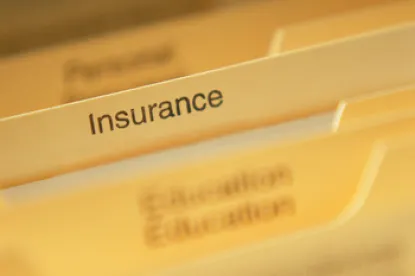One of the most powerful weapons an insurance company can use to defeat a bad faith claim is the “genuine dispute” doctrine. Under this doctrine, as long as there was a genuine dispute regarding coverage or the amount owed, the insurer cannot be held liable for having withheld the disputed policy benefits even if it later turned out they were owed. Chateau Chamberay Homeowners Ass’n v. Associated Int’l Ins. Co., 90 Cal.App.4th 335 (2001). Historically, this defense has been applied most commonly in published cases involving disputes over unsettled legal issues or where the insurer’s position was supported by a qualified expert. See e.g., Fraley v. Allstate Ins. Co., 81 Cal.App.4th 1282 (2000); Guebara v. Allstate Ins. Co., 237 F.3d 987 (9th Cir. 2001); Opsal v. USAA, 2 Cal.App.4th 1197 (1991).
Recently, however, a published decision expanded the use of the doctrine to disputes over general damages. In Hovsepyan v. GEICO Gen. Ins. Co., — F.Supp.3d —, 2022 WL 2873059, at *7 (E.D. Cal. July 21, 2022), the district court noted that the value of a claimant’s general damages is “a matter on which there legitimately may be a wide difference of opinion”.[1] Therefore, the court held, the insurer could not be liable for bad faith based on a dispute over general damages even though the claimant ultimately was awarded more than the insurer offered.
In Hovsepyan, three insureds were injured in an accident caused by an uninsured motorist. The insureds submitted claims for uninsured motorist benefits to their insurer, GEICO. However, while both sides agreed on the value of the insureds’ medical specials, they could not reach an agreement on the general damages – the insureds claimed a total of over $100,000 in general damages, whereas GEICO evaluated those claims to be worth about $26,000. Because of the parties’ dispute over general damages, the UM claims proceeded to arbitration. The arbitrator awarded the insureds a total of about $54,000 for their pain and suffering, which was over 100% more than GEICO had offered for those damages.
After GEICO paid the award, the insureds sued for bad faith. In response, GEICO filed a motion for summary judgment contending that the bad faith claim failed under California’s “genuine dispute” doctrine, among other grounds.[2] The Court granted GEICO’s summary judgment motion.
The Court noted that the “discrepancy between the parties’ respective settlement positions prior to the uninsured motorist arbitration are attributable to differences in their valuation of general, ‘pain and suffering’ damages.” The Court held that “[e]valuating such damages is an inherently subjective process” that justified application of the genuine dispute doctrine. (Id. at *6.) In arriving at this conclusion, the Court followed the reasoning in an unpublished federal case, Holenda v. Infinity Select Ins. Co., No. CV13-07128R (CWx), 2014 WL 559381 (C.D. Cal. Feb. 13, 2014), in which the district court arrived at a similar conclusion:
With respect to general damages in particular, Holenda recognized their subjective nature, noting that “[t]ranslating pain and anguish into dollars can, at best, be only an arbitrary allowance, and not a process of measurement.” Id., citing Beagle v. Vasold, 65 Cal. 2d 166, 172, 53 Cal.Rptr. 129, 417 P.2d 673 (1966). The court further noted that the amount to be awarded for such damages is “a matter on which there legitimately may be a wide difference of opinion” (id., citing Seffert v. Los Angeles Transit Lines, 56 Cal. 2d 498, 508, 15 Cal.Rptr. 161, 364 P.2d 337 (1961)), and “are inherently subject to genuine dispute.” (Holenda, at *4.)
Hovsepyan at *6. Hovsepyan’s application of the genuine dispute doctrine to general damages is significant. This is because the resolution of uninsured/underinsured motorist claims often hinge on disputes over the value of general damages. Prior to Hovsepyan, there was no published precedent in California on this important issue. Thus, this decision should provide guidance for evaluating future bad faith cases involving disputes over general damages.
FOOTNOTES
[1] The Hovsepyan decision is currently being appealed before the Ninth Circuit.
[2] GEICO also asserted a statute of limitations defense that was an independent basis for the motion. That defense, although successful, is not addressed in this article.



 />i
/>i

